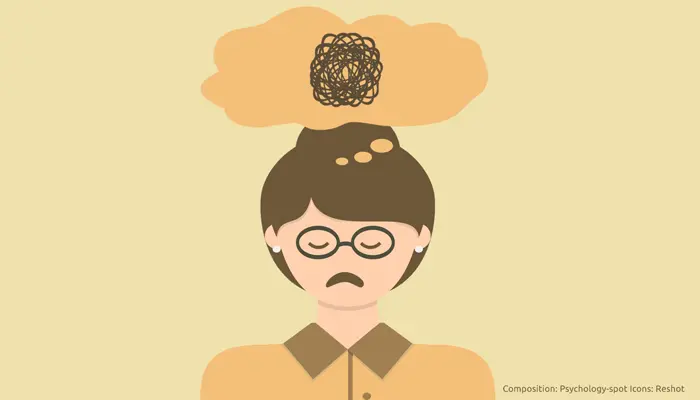
Anticipation is a somewhat contentious way of relating to the world. When we were little and were waiting for our gifts, whether for Christmas or our birthday, the anticipation generated a state of positive expectation in us. However, to the same extent that we have grown, we have made a negative association and the anticipation generates anxiety because dozens of negative thoughts come to our minds.
What if I don’t meet his/her expectations? What if I don’t make it? Will he/she leave me? Doubts about our performance begin to occupy the space that we previously filled with positive ideas and, obviously, this generates a lot of tension. This is what in Psychology is known as “anticipatory anxiety.”
The funny thing is that practically every future event is accompanied by this anxiety. This happens because our brain goes further and anticipates possible disasters, calamities, mistakes and problems that may arise along the way. In some ways, it is normal and part of the process of weighing the pros and cons of situations, but when this way of thinking becomes a habit, then we have a problem.
Five steps to face the fear of the uncertain
Most of the time we start this mechanism unconsciously, but the good news is that we can put a stop to it consciously. How to eliminate anticipatory anxiety? Here are some steps to help you:
- Interrupt the vicious cycle of negative emotions. Practically every thought we have generates an emotion, so it is not difficult to understand that if we fill our minds with catastrophic ideas, we will end up very anxious and with our nerves on edge. Therefore, the first step to interrupt anticipatory anxiety is to discover the emotions they generate and calm them. Take a deep breath and relax. When you regain control over your emotions you can go one step further and analyze the situation rationally.
- Detect negative thoughts. What are you thinking? If it helps, write those ideas down on paper. You will be amazed to realize that you focus more on the things that can go wrong than on the positive aspects. That is the cause of anticipatory anxiety.
- Dismantle each of the thoughts. Once you have discovered those negative ideas, take them one by one and imagine what would be the worst scenario that could happen. What can you expect in the worst case scenario? How would you feel? Often the worst case scenario is not as bad as you assume, what happens is that you are magnifying the consequences in your mind and that is why you are so afraid.
- Change the focus of attention. To control anticipatory anxiety you need to change your attitude, which means you should focus on the positive aspects. You know the things that could go wrong, take action on them, and then fill yourself with positivity. I am not saying that with positive thinking you will be able to achieve what you want, but it will certainly be easier.
- Get used to uncertainty. In reality, life is quite uncertain and the sooner you accept it, the better it will be. To eliminate anticipatory anxiety, it is essential that you learn to live with uncertainty without feeling uncomfortable, making it part of your life. A good strategy is to focus on the here and now, trying to control the tendency to assume what will happen in the future.



